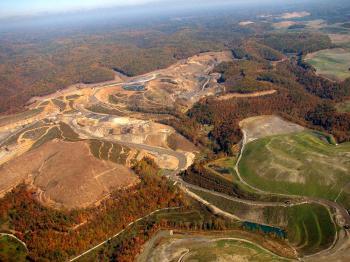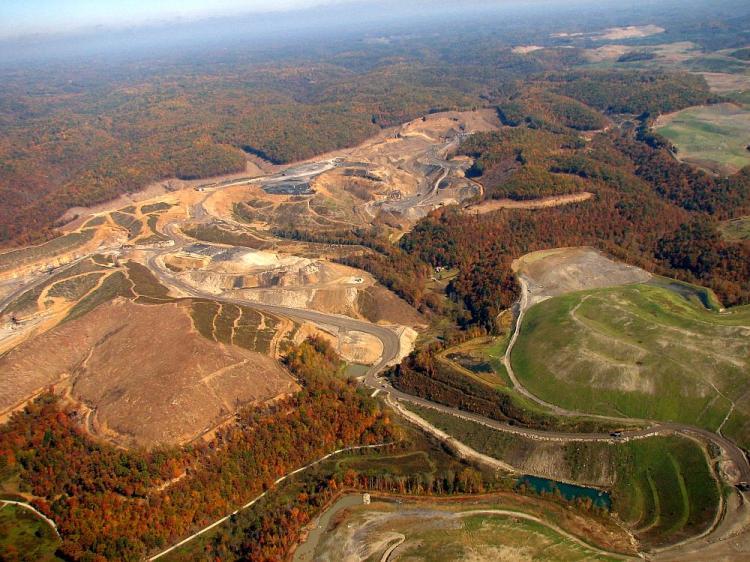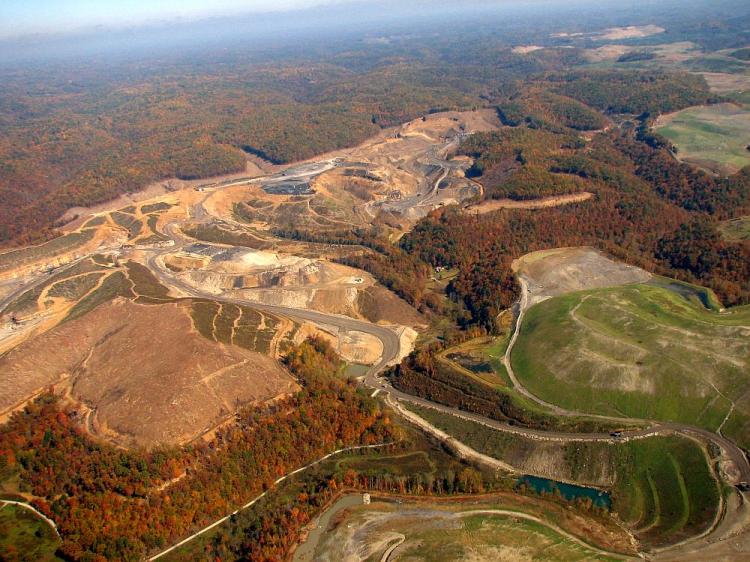Controversial WV Mountaintop Mining Permit Approved
The federal government’s permit approval for a mining project in West Virginia is raising red flags for environmental organizations.

An aerial view of part of the Hobet mine in West Virginia, where mining has already begun. Vivian Stockman/OHVEC.org and SouthWings.org
|Updated:





